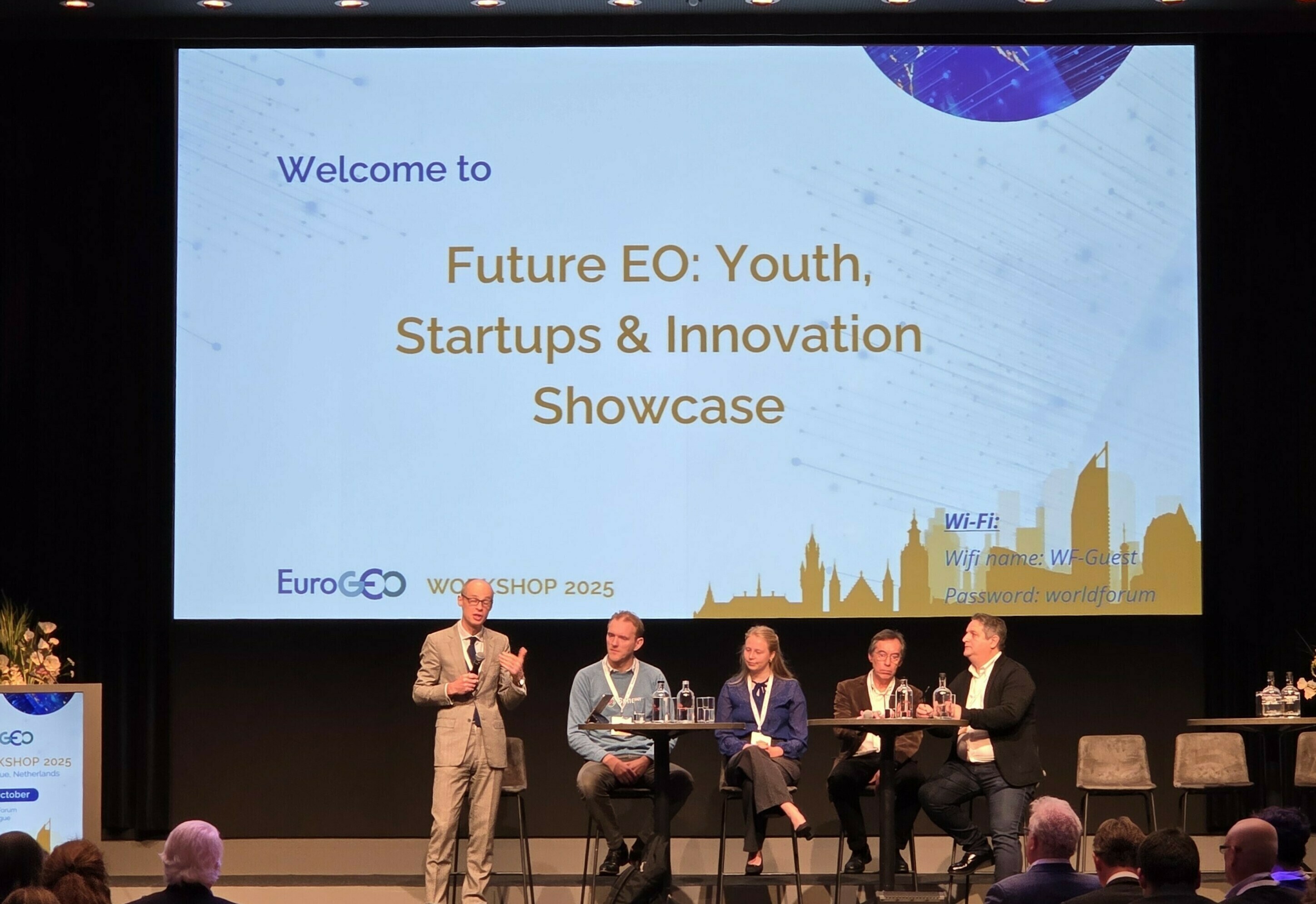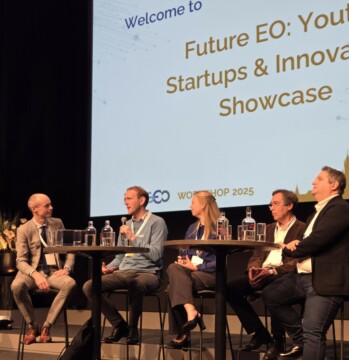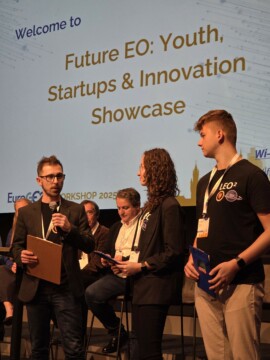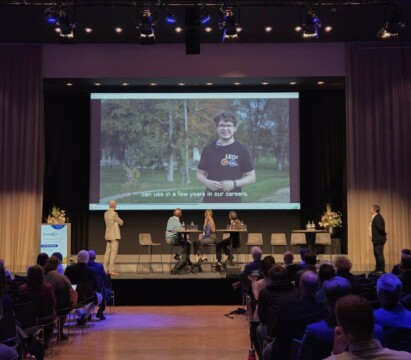EuroGEO Workshop 2025: Empowering the Next Generation of Earth Observation Innovators

Hosted at the World Forum in The Hague, the EuroGEO 2025 workshop (13-15 October) aimed to accelerate the Earth Intelligence concept—core to EuroGEO—by reinforcing Europe’s contribution to the Group on Earth Observations (GEO), the intergovernmental partnership that coordinates global efforts to improve access to and use of Earth Observation data.
One of the central objectives of this year’s EuroGEO Workshop was a clear and compelling call to action:
“Engage youth and startups, showcase next-generation EO innovation, and identify how EuroGEO can better support emerging actors in the EO ecosystem.”
— EuroGEO Workshop 2025
This focus aligns seamlessly with the GEO post-2025 strategy, which emphasises:
“Increasing participation of young people in the development of Earth Intelligence.”
— Youth are the future of Earth Intelligence for All – GEO
Continuing its commitment from previous years, Eurisy was invited to design and moderate a dedicated session exploring how emerging actors can shape the future of Earth Observation (EO). The session centred around three key questions:
- How can students, young professionals, and innovation networks actively contribute to advancing the EO sector?
- How can EuroGEO scale up these initiatives to maximise their impact?
- How can these efforts be integrated into a broader vision for a new era of Earth Intelligence—one that prioritises inclusion, cooperation, and equity?
This dynamic panel brought together voices from diverse backgrounds and areas of expertise to identify challenges, share insights, and spark meaningful discussions with the audience.
Graham Turnock, Secretary General of Eurisy, opened the session by emphasising the strategic importance of engaging the next generation in EO. He reaffirmed Eurisy’s commitment to this mission through its outreach and activities and projects, like SpaceSUITE and GEO Academy.
Kim Regnery (Netherlands), point of contact for the Space Generation Advisory Council, underscored the value of youth communities and networks in guiding students and young professionals toward careers in EO. She highlighted the role of hackathons and competitions in gamifying education and skill development—making learning both engaging and impactful.
Jakko de Jong, representing the Dutch startup Spheer, addressed the existing skills gaps in the EO sector. He also pointed to the transformative potential of AI in enabling broader access to space data and empowering both EO professionals as users.

From left to right: Graham Turnock, Jakko de Jong, Kim Regnery, Stanislaw Lewinsky, Andrei-Bocin Dimitru.
Andrei-Bocin Dimitru from dotSPACE presented the organisation’s latest activities, with a particular focus on the innovative projects SKIES and SpaceSUITE, which train and empower students and young professionals. He stressed the need to move from data to meaning, stressing the need to turn information into intelligence, mentioning how EuroGEO can play a great role in this vision as an innovation ecosystem.
Stanislaw Lewinski from the Space Research Centre of the Polish Academy of Sciences introduced the LEOO initiative—the Local Earth Observation Observatoryof Poland, a scientific group founded in 2024 by students from Emilia Plater High School in Biała Podlaska, eastern Poland, following their concept presentation at EuroGEO 2024 in Kraków.
LEOO is driven by a set of inspiring objectives:
- Gaining practical experience in satellite remote sensing
- Popularising science among youth
- Exploring new career paths
- Participating in interactive learning experiences
- Collaborating with local communities and institutions
- Celebrating and promoting student achievements
The second part of the session featured the LEOO team on stage, including professors Renata Michalczuk and Sławomir Filipiuk, along with students Martyna Michałowska and Michał Bednarek. They shared their journey, highlighted key milestones from the past year, and showcased the wide range of activities and events they’ve participated in.

Most notably, the team proposed an idea: the creation of a European network of Local Earth Observation Observatories. This initiative would connect high schools across Europe, fostering collaboration between local groups and amplifying the impact of youth-led EO projects. An idea that, with the support of the EuroGEO network, could be scaled up to become a cornerstone of inclusive and cooperative Earth Intelligence development.

